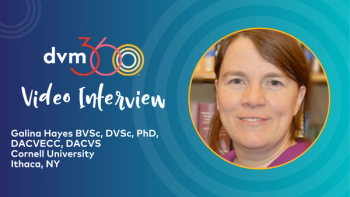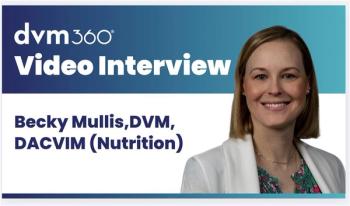
Mind Over Miller: We do what we have to do!
During the energy crunch of the late '70s, it was predicted that the planet had a 35-year supply of petroleum left. That was an underestimate, of course, but it did forecast the present inadequate supply of petroleum, its high cost, and the frantic activity to find alternative energy sources.
During the energy crunch of the late '70s, it was predicted that the planet had a 35-year supply of petroleum left. That was an underestimate, of course, but it did forecast the present inadequate supply of petroleum, its high cost, and the frantic activity to find alternative energy sources.
Robert M. Miller, DVM
Back then, one of our solutions to the shortage was to impose a nationwide 55-mph speed limit. I have already written about that obviously helpful measure* and observed that in our present speed-addicted society this idea has not been considered by even the most vocal environmental groups.
In response to the current energy crisis, a variety of energy sources will be increasingly used, including wind power, geothermal sources, natural gas, coal, and so on. At least today's crisis won't be largely ignored, as was the shortage 30 years ago when, as soon as oil supplies increased, our answer was to drive SUVs and build bigger homes.
Serious consideration is being given to converting existing gasoline-powered vehicles to natural gas, which has caused consternation in many people. Well, I have news for you. Whether you are a large-animal practitioner, for whom driving many miles is part of life, or a small-animal practitioner who must commute to a local practice each working day, we will do what we must do when no other choice exists.
During World War II, some German citizens drove wood-gasâpowered cars because of the petroleum shortage.
Toward the end of World War II, Germany experienced a critical fuel shortage. What little gasoline was available was reserved for military use. A wry commentary was often being quoted:
"Was ist los mit die Luftwaffe?" [What is wrong with the air force?]
"Kein Benzin!" [No gasoline!]
Despite the war, many civilians needed to drive. The answer was holzgas (wood gas). A wood-fired furnace was attached to the front of the automobile, and the energy produced by the fire was converted and fed to the engine. It was smoky and inefficient, and drivers had to periodically stop and stoke the fire. But it worked!
When the war ended, Germany was devastated—its cities and industry destroyed—so holzgas-powered cars continued to be seen on the highways for a few more years.
Realizing this was a technological phenomenon that may never be seen again, I took a photograph of a Holzgas-powered car. Looking at it, converting to natural gas or batteries does not seem so imposing.
Incidentally, in July of this year, I was on a veterinary tour of Switzerland. While I was there, gasoline went from $8.50 to $9 per gallon!
Of course, Switzerland is not as dependent on driving as we are, but its freeways were still jammed, just as ours are.
We do what we have to do!
*Editors' note: Read Dr. Miller's column, "I can drive 55" from the August 2007 issue at http://
Robert M. Miller, DVM, is an author and a cartoonist, speaker, and Veterinary Medicine Practitioner Advisory Board member from Thousand Oaks, Calif. His thoughts in "Mind Over Miller" are drawn from 32 years as a mixed-animal practitioner. Visit his Web site at
Newsletter
From exam room tips to practice management insights, get trusted veterinary news delivered straight to your inbox—subscribe to dvm360.






